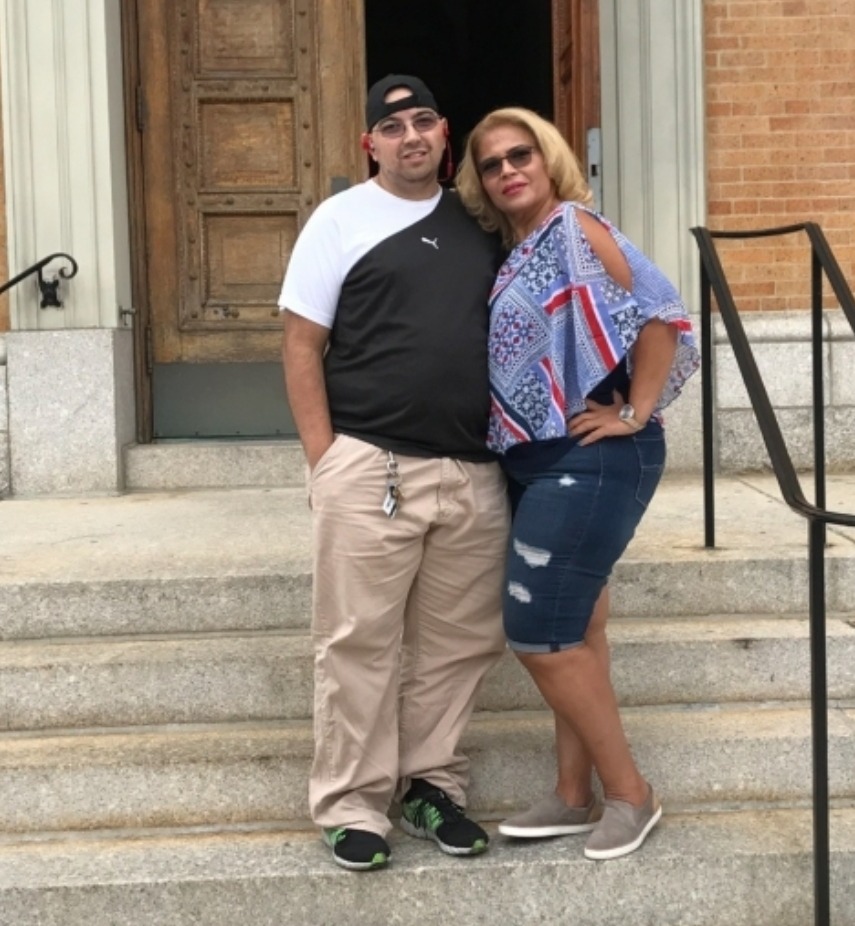
Fred and Maria D’Amico (Sen. Joseph Addabbo)
Jan. 15, 2021 By Allie Griffin
State Sen. Joseph Addabbo introduced a bill earlier this month to protect people with cognitive disabilities during the pandemic after he heard of an autistic constituent’s tragic death.
Addabbo said he was inspired to craft the bill after learning about the passing of Fred D’Amico, a 30-year-old Glendale man with Autism, who died alone in a hospital due to COVID-19 on March 31.
D’Amico’s parents were constantly at his side to help him through his daily life, but were forbidden to visit him at the hospital due to COVID-19. New York State at the time of his death prohibited hospitals from allowing guests in an effort to reduce the spread of the coronavirus. Hospital visitors are now permitted.
The legislation aims to make sure that patients who are unable to communicate their needs are permitted to have a support person in case future prohibitions are put in place.
“What happened to Fred, and others, should never happen again,” Addabbo said. “It is vitally important to ensure that patients with communication deficiencies are able to have someone they trust with them to report to medical staff the patient’s medical history and needs.”
The legislation would protect people with any condition that makes it difficult for them to verbally communicate their needs or health problems — such as individuals with autism or cerebral palsy. It would guarantee that they would have someone like a caretaker or parent to report their medical needs and history to hospital staff.
Maria D’Amico, the mother of Fred D’Amico, said she doesn’t want to see anyone else to go through what her family did.
“This is not about getting justice for me, but honoring my son, and making sure that this does not happen again to anyone else,” she said. “We just had to go through Christmas without our son, and I do not want that experience for anyone else.”
Mrs. D’Amico brought her son to Good Samaritan Hospital on Long Island on March 27 because he was running a fever. She and Fred’s siblings were denied the right to stay with him due to COVID-19 and were instead told to call the hospital for updates, according to an advocate for the family.
The following day — allegedly after several unanswered calls — Mrs. D’Amico was informed that her son had been intubated. The family continued to call for updates, but were told to call less often as hospital staff struggled to treat an influx of patients, according to the family advocate and activist Connie Altamirano.
Then on March 31, Mrs. D’Amico received a call from hospital staff at 3 a.m. telling her that her son’s kidneys were failing and he could not be saved.
She was denied final goodbyes with her son and not offered the option to video call him, according to Altamirano.
Now, Mrs. D’Amico says she often wonders whether he would have survived if she had been at the hospital to help him.
“I wake up every day with a pain in my chest thinking that there might have been something more I could’ve done for Fred,” she said. “I feel so guilty for leaving him alone in the hospital.”
Mrs. D’Amico said her son never went anywhere without her or his sister and can only imagine how terrifying it was for him to be alone in the hospital, not knowing what was going on.
“Many people think that people with Autism don’t have emotions, but they are very affected by their surroundings and by sudden changes,” she said. “I know that being left alone and surrounded by machines was terrifying for him. I know he would have wanted me there to say goodbye. I believe that is part of why he died.”
Addabbo’s bill was referred to the Senate Disabilities Committee on Jan. 6 for review and a vote. Assembly Member Stacey Pheffer Amato is introducing a companion bill in the State Assembly.
One Comment

My heart goes out to you and so sorry for your loss. Stay strong. I can’t imagine what you’ve been through. I’m so sorry. My daughter is autistic. I do understand.